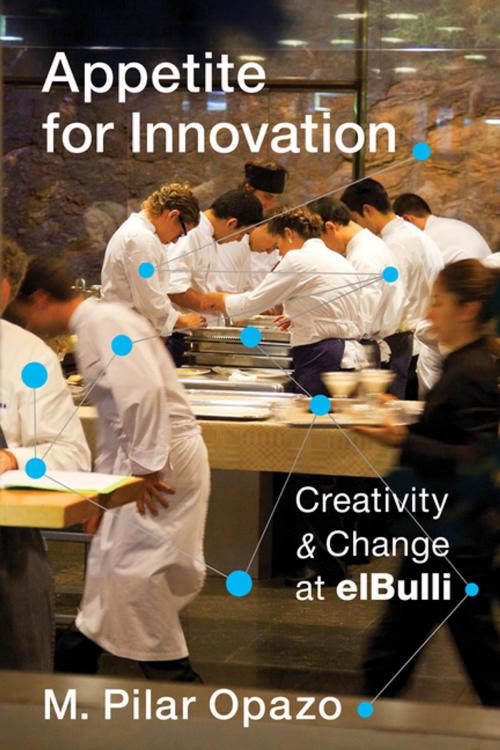Appetite for Innovation
Creativity and Change at elBulli
Business & Finance, Human Resources & Personnel Management, Organizational Behavior, Industries & Professions, Industries, Nonfiction, Social & Cultural Studies, Social Science, Sociology| Author: | M. Pilar Opazo | ISBN: | 9780231541633 |
| Publisher: | Columbia University Press | Publication: | July 5, 2016 |
| Imprint: | Columbia University Press | Language: | English |
| Author: | M. Pilar Opazo |
| ISBN: | 9780231541633 |
| Publisher: | Columbia University Press |
| Publication: | July 5, 2016 |
| Imprint: | Columbia University Press |
| Language: | English |
The name elBulli is synonymous with creativity and innovation. Located in Catalonia, Spain, the three-star Michelin restaurant led the world to "molecular" or "techno-emotional" cooking and made creations, such as pine-nut marshmallows, rose-scented mozzarella, liquid olives, and melon caviar, into sensational reality. People traveled from all over the world—if they could secure a reservation during its six months of operation—to experience the wonder that chef Ferran Adrià and his team concocted in their test kitchen, never offering the same dish twice. Yet elBulli's business model proved unsustainable. The restaurant converted to a foundation in 2011, and is working hard on its next revolution. Will elBulli continue to innovate? What must an organization do to create something new?
Appetite for Innovation is an organizational analysis of elBulli and the nature of innovation. Pilar Opazo joined elBulli's inner circle as the restaurant transitioned from a for-profit business to its new organizational model. In this book, she compares this moment to the culture of change that first made elBulli famous, and then describes the novel forms of communication, idea mobilization, and embeddedness that continue to encourage the staff to focus and invent as a whole. She finds that the successful strategies employed by elBulli are similar to those required for innovation in art, music, business, and technology, proving the value of the elBulli model across organizations and industries.
The name elBulli is synonymous with creativity and innovation. Located in Catalonia, Spain, the three-star Michelin restaurant led the world to "molecular" or "techno-emotional" cooking and made creations, such as pine-nut marshmallows, rose-scented mozzarella, liquid olives, and melon caviar, into sensational reality. People traveled from all over the world—if they could secure a reservation during its six months of operation—to experience the wonder that chef Ferran Adrià and his team concocted in their test kitchen, never offering the same dish twice. Yet elBulli's business model proved unsustainable. The restaurant converted to a foundation in 2011, and is working hard on its next revolution. Will elBulli continue to innovate? What must an organization do to create something new?
Appetite for Innovation is an organizational analysis of elBulli and the nature of innovation. Pilar Opazo joined elBulli's inner circle as the restaurant transitioned from a for-profit business to its new organizational model. In this book, she compares this moment to the culture of change that first made elBulli famous, and then describes the novel forms of communication, idea mobilization, and embeddedness that continue to encourage the staff to focus and invent as a whole. She finds that the successful strategies employed by elBulli are similar to those required for innovation in art, music, business, and technology, proving the value of the elBulli model across organizations and industries.















